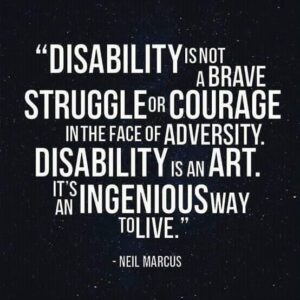
Aspergers Syndrome – How it helps with advocacy at Business Crisis Support NZ
Founder and Administrator Fiona Green (Ngapuhi) is an experienced Administrator, Community Advocate, and holds a Bachelor of Education (Tchg) degree from Massey University. She is respected as ‘a strong voice for the disadvantaged,’ and works tirelessly to support the disenfranchised in her community.
Fiona is an experienced lobbyist with a commitment to giving voice to small business owners, individuals and groups and for the disabled. Fiona’s ground-breaking, innovative approach was demonstrated when she established “Business Crisis Support NZ.”
Running for just over eight years, this Organisation offers support to those who have experienced business loss and addresses the impact the resulting challenges have for individuals on their mental health.
Fiona’s passions includes the Human Rights Change Movement, Administration, Financial and Economic Literacy, Visual Arts, and Humanitarian initiatives. She is a published author of Children’s books written in Te Reo Māori.
“As well as being a Social Justice (Business) Advocate, I am also an Autism Advocate. There are many people in business who have visible and invisible disabilities. It is therefore the reason why I want to share my uniqueness with you, & what makes me different from many other Advocates.
You see, I have Asperger’s Syndrome. Asperger’s is not a mental illness – it just means that those of us who have this ‘gift,’ are physiologically wired differently. We are different, yes. We can become intensely interested & passionate about a topic, – but we are not obsessed. In our psyche we have a natural sense of fairness & justice. If we see that things are not looking or sounding right, we do not remain silent. We speak up – when others are too afraid to speak out.
My life as an *Aspie has been one of roller coaster excitement, living on the edge, getting into trouble for opening my mouth, etc, etc. I think you get the picture. This Article highlights some of the careless things people have said to me over the years – even when I was in business, along with my responses.
There are some great things I have achieved in this big thing called Life (listed at the end). In spite of this, some people continue to relegate me to the category of Moron or Retard. It’s a label that is not appropriate, & one that is not even true.”
My Journey with Aspergers Syndrome

Whenever I tell someone that I have Aspergers Syndrome they look at me with surprise. ‘Really? You don’t look like you have it.’ My response is, ‘Really, how am I supposed to look?’ At this point I look at them with my eyes-crossed, & tongue hanging out the side of my mouth. As a person with Aspergers Syndrome, these are probably the main things not to say to us:
“Are you sure you’ve got that thing called Aspergers?”
Yes, I’m absolutely sure. I was formally diagnosed as having it by a Clinical Psychologist.
“Oh,(wiping their forehead with relief), you’ve only got it very mildly”
The effects of Aspergers are never mild.
“Wow, you must be really good with numbers, playing the violin, etc”
One person with Aspergers is not like another.
“You just use your Aspergers as an excuse to act the way you do”
You’re right, Aspergers is not an excuse. It’s a neurological condition.
“Everything is not black & white you know. You need to be flexible”
Really? Some things are black and white. Please do not pressure me. Changing my behaviours & ways of thinking – at the drop of a hat – is difficult & stressful.
“You seem very nervous – fiddling around with your fingers like that.”
I usually do this when there’s been a sensory overload. It’s called ‘stimming’ & it calms me down. I also do it when I’m around people who don’t make me feel comfortable.
“Why can’t you just follow directions. Everyone else does.”
Really? Do you think I enjoy being confused when you’re spewing out a whole lot of unnecessary words in your instructions. I am trying so hard, but my brain processes information differently from yours.
“Don’t be shy, join the group – relax. Talking with others is easy.”
When you cannot read or understand those around you most times, how are you supposed to smile & make friends?
“My child has autism, & you’re nothing like my child.”
I agree, I’m not like your child. I’m not even a child – I’m an adult. Autism (Aspergers) presents itself in different ways.
“I’m sure you can grow out of Aspergers if you tried – then you can be normal like the rest of us.”
It is not possible to ‘grow out’ of Autism because it is a neurological disorder. **Aspies function as normally as possible – with their disorder.
“All children & adults learn social skills. Aspergers is not a disorder; parents just don’t know how to teach those skills to their children.”
Parents do teach social skills to Aspie children. But Aspergers does not occur when parents don’t do this. Aspergers Syndrome exists.
“It’s all in your head – this Aspergers crap. You can change if you really wanted to.”
Technically you’re right. & yes, it’s all in my head as is any neurological disorder. It’s not something that you just snap out of – in the same way a diabetic cannot snap out of their condition.
“My neighbour’s daughter has Aspergers & she’s a nightmare to deal with. The Parents are irresponsible, they sit back and do nothing.”
You are complaining to me about someone else’s child with Autism. Please don’t do this. We can be hard to manage on a daily basis – even as adults. Instead of judging, try to understand how we see the world – by asking us.
“Are you like that guy from the film Rain Man”
No, I’m brilliant like that lady from the film ‘Temple Grandin’ (who has Aspergers). I am like me. Albert Einstein, Mozart, Darryl Hannah, Bill Gates are Aspies.
“Do you need to see a Counsellor?”
Not for being wired physiologically different – no. My family & friends are enough.
“Are you obsessed with something right now?”
Seems like a pretty rude question to ask, don’t you think?
“Stop telling people you’ve got Aspergers!’
As long as I have the ability to speak & type, I will not stop sharing my uniqueness. Awareness is the key for people who don’t have what you need to have – to understand Aspergers Syndrome.
Asperger’s Syndrome – Our gifts and strengths in life and advocacy
(source: Coaching Asperger www.coachingasperger.com)
Being hyperfocussed – Ability to focus on one objective over long periods of time without becoming distracted. Allows Aspies to accomplish large & challenging tasks.
Unique global insights – ability to find novel connections among multi-disciplinary facts & ideas allows them to create new, coherent & meaningful insights that others would not have reached without them.
Independent thinking – their willingness to consider unpopular or unusual possibilities thus generating new options & opportunities, thus paving the way for others.
Internal motivation – rather than being swayed by social convention, other’s opinions, social pressure or fears, Aspies can hold firm to their own sense of purpose. Their unique ideas can thrive, despite naysayers.
Attention to detail – their ability to remember & process minute details without getting lost or overwhelmed gives them a distinct advantage when solving complex problems.
3-Dimensional thinking – their ability to utilise 3-dimensional visioning giving a unique perspective when designing & creating solutions.
Cutting through the smoke screen – their ability to recognise & speak the truth that is being ‘conveniently’ ignored by others can be vital to the success of a project or endeavour.
Logical decision making – their ability to make logical & rational decisions & stick to their course of action without being swayed by impulse or emotional reactions. This allows Aspies to navigate successfully through difficult situations without being pulled off-course. ‘Aspergers –different not less.’ – Temple Grandin
Fiona’s achievements as an * Aspie
Massey University Degree in one hand, a Business Management Qualification, & Administrative studies, in the other.
‘My Bachelor of Education (Teaching) Degree helps with research, investigation, analysing, writing, presenting information & educating. Aspergers Syndrome never stopped me – or even others who have it – from running a business & contributing to the local economy. It has not stopped me from using my initiative to start a support group which has attracted people at differing levels of entrepreneurship. My dabblings as a Published Author – required creativity. Creativity is a skill I draw on in my Business Advocacy endeavours.
Events leading up to, during, and after I lost my business impacted severely on me. Due to a culmination of tragic events, I was diagnosed with an adjustment disorder [similar to PTSD]; experienced Anxiety, depression, etc. When it comes to helping others, ‘Lived’ experience of Mental Health is considered relevant experience by the Mental Health Sector. I would also say ‘lived’ experience of business loss is also relevant. “Business loss and the Mental-Health fall-out are interconnected,” says Fiona.
Acknowledgement
To fellow warrior Lisa Cowe – Researcher, Campaigner, Social Justice Advocate, and Website designer from Christchurch, thanks for your strength, tenacity, talent, courage. Follow and support Lisa’s Campaign trails on Linkedin which includes Articles on: Insolvency, Bankruptcy, Credit Controllers, Debt Collectors, Banks, Corporate Bullying, Human Rights to own a Bank Account, etc.
Her websites of public interest include:
www.communitystandards.org.nz
www.debtfreeforlife.co.nz
Addendum
Judgements – automatically pigeon-holing a person in situations like business loss, business failure, bankruptcy, mental health impact – as guilty/not guilty. is counterproductive. Familiarity is comfortable – but such judgements drop a screen effectively preventing others from seeing what’s gone on behind the scenes. Prematurely judging people like this stops others from perceiving new information – that undoubtedly could be or would have been helpful.
The kindest, most giving people I have found on my journey into Business Social Justice Advocacy, are those who have lost everything – but still want to give back & help others.
Aspie – person diagnosed with Asperger’s Syndrome. A high functioning form of Autism. * Aspies – plural of Aspie
Spread love, support and equal rights for all.